The Case for Levothyroxine Injections
There’s no doubt that if you are a thyroid patient you’ve heard of levothyroxine.
Levothyroxine is the most standard and frequently prescribed medication to treat hypothyroidism of all types (and your doctor’s favorite medication to use even though it isn’t the best).
Today we are going to be discussing levothyroxine but with a bit of a twist.
And this twist makes all of the difference and you’ll see why as we talk about it.
We are going to discuss the benefits of levothyroxine injections.
You might be conditioned to think that levothyroxine, in all its forms, is not a very good thyroid medication.
And while it certainly has its drawbacks, you’ll probably be surprised to find that T4 medications work quite well for many people provided they are used correctly.
One of the biggest problems with the generic levothyroxine medication that you take by mouth is that your body has a hard time absorbing and utilizing the medication.
So even if it COULD be working for you it may not because it’s not actually being absorbed by your intestinal tract.
This problem can basically be bypassed by using levothyroxine injections which should have a more prominent place in the treatment of hypothyroidism for certain patients.
And that’s exactly what we are going to discuss…
Who should use levothyroxine injections, how they differ from oral levothyroxine medications, and why they may actually be a great solution for many thyroid patients.
Levothyroxine Injections as a form of thyroid medication
The idea of levothyroxine injections may sound novel but they have been around for quite a while.
Typically, levothyroxine injections are only used to treat a life-threatening condition known as myxedema coma (1).
This condition rarely happens in the United States but it does happen in other countries.
Myxedema coma only occurs if you have hypothyroidism and don’t take your medication for several months.
Thyroid hormone is a required hormone (not optional) and if you go without it for a long length of time the consequence is coma and potentially death if not treated.
Obviously, people in a coma are not able to swallow pills so they are given levothyroxine injections (or IV thyroid hormone) to bring them out of the coma.
And so levothyroxine injections have typically only been used for this purpose.
But here I want to make the argument that levothyroxine injections have a place in the standard care of hypothyroidism.
I’m talking about you (the person reading this article), who is not in a myxedema coma, but instead is struggling with the persistent symptoms of hypothyroidism despite taking medications like levothyroxine.
Levothyroxine has a place in restoring thyroid function to people like YOU.
I’ve personally only used levothyroxine on a handful of patients so far but the results have always been very good.
The medication seems to take effect much faster than oral medication and it seems to be far more effective at the same dose compared to oral medication.
Oral Levothyroxine vs. Levothyroxine Injection
Is oral levothyroxine really that much different than levothyroxine injections?
Aren’t they the same medication?
Well, they are obviously the same medication but how you take it makes ALL of the difference.
We have to face the facts.
Thyroid medication, in general, just isn’t well absorbed.
This is why there are so many rules about how and when you should take your thyroid medication.
On the extreme end, your pharmacist or doctor (if they tell you at all) will suggest that you take
Why do you think they make these recommendations?
Because we have all sorts of medical research and data that show that basically anything you put into your mouth at the same time as your thyroid medication will seriously impact its absorption in the intestinal tract.
Food, coffee, liquids, juices, medications, supplements, and the list goes on.
All of these can and do have a negative impact on how much thyroid hormone actually makes it into your body.
Before your oral thyroid medication makes it into your bloodstream it must first pass through the intestinal tract where its absorption can be delayed or blocked.
Then once it is absorbed it must pass through your liver where it can be metabolized even further which reduces the total dose that makes it to your heart.
Your heart then pumps it through your arteries to your cells which must convert it before they can use it.
Each step can be blocked or slowed down starting from the very beginning.
So it’s no wonder that so many thyroid patients struggle to feel well despite taking their medication!
What’s so different about levothyroxine injections?
These injections bypass two very important steps listed above.
First, they bypass the intestinal tract and second, they bypass the initial metabolism by your liver.
If you inject levothyroxine directly into your subcutaneous tissue, fat cells, or muscle cells, the hormone gets STRAIGHT into your cells where it can start working right away.

Whatever hormone doesn’t make it into your cells will get picked up by the lymph system (which dumps it back into your veins) or get circulated through your capillaries back to your bloodstream.
Either way, levothyroxine injections provide a quick way to get thyroid hormone directly into your body while bypassing certain areas that thyroid patients struggle with.
And bypassing these things can make ALL of the difference.
You would probably be surprised to know that many patients who fail oral levothyroxine and Synthroid do incredibly well when simply switching to thyroid medications like Tirosint.
Tirosint is much better absorbed even though it contains the exact same ingredients.
And many patients report an immediate improvement when switching from levothyroxine to Tirosint.
This effect is compounded with levothyroxine injections because you still get to skip the oral absorption component.
Another example of the beneficial effects of injections over oral preparations can be seen in the case of B12 injections/shots.
Oral B12 supplements are great because many hypothyroid patients suffer from B12 deficiency.
But I’ve seen numerous cases of patients who light up when they receive B12 injections/shots even if they are currently using oral B12.
This is why I love B12 injections so much for thyroid patients.
I can even see a place for levothyroxine injections to treat fibromyalgia and chronic muscular pain syndromes that certain thyroid patients face.
Persistent hypothyroidism is KNOWN to cause a fibromyalgia-like syndrome as well as chronic pain due to its impact on muscular tissue.
I normally treat these issues with T3 thyroid hormone (to bypass thyroid conversion) but it would be highly likely that levothyroxine injections could do a better job by directly injecting small amounts of thyroid hormone into sore muscles.
Who should use Levothyroxine Injections?
Can anyone just jump on levothyroxine injections and call it a day?
I probably wouldn’t recommend that approach but there are a number of groups of patients who should definitely consider using them.
Also, remember that just because you use levothyroxine injections doesn’t mean you have to stay on them forever.
In the past, I’ve used these injections in certain patients to help them get control of their symptoms as they transition to oral medications (but these oral medications are always a combination of T3 and T4, not just T4).
With this in mind, here are the people who would do well on levothyroxine injections:
- Those with extreme intestinal issues – including conditions that cause malabsorption, irritable bowel syndromes, inflammatory bowel disease, SIBO/SIFO, and other conditions that disrupt the gut microbiome and impact absorption of nutrients/medications.
- Those who have had gastric bypass or other intestinal surgeries – These surgeries often cause permanent or temporary GI issues and malabsorption syndromes (2). In addition, almost all of these patients had thyroid conditions before their surgery due to their weight.
- Those who have failed standard thyroid medications of all types – If you are someone who just hasn’t responded well to thyroid medications in general then you would be a candidate.
- Those with persistent symptoms of hypothyroidism despite taking thyroid medication daily – Sometimes the TSH can respond to your thyroid medication but your symptoms remain or get worse despite taking thyroid medicine.
- As a simple test to see if you are absorbing thyroid medication – These injections can be used as a “test” to see if your medication is actually working or to gauge just how much your intestinal tract is playing a role. 2-4 weeks of levothyroxine is enough to tell.
- Those with mucin accumulation (3) in the skin which doesn’t respond to oral thyroid medications.
If you fit into any of the above categories then levothyroxine injections could be considered for your case.
But that brings up the next question:
How do you get them?
Levothyroxine injections, like any other thyroid medication, require a prescription from your doctor.
Any doctor can write a prescription for this medication but you might have trouble getting a prescription from your run-of-the-mill conventional doctor unless they understand the nuances of thyroid medication listed here.
Standard doctors such as endocrinologists and family practice providers are conditioned to believe that levothyroxine (the oral version) is the universal treatment for hypothyroidism.
And if you continue to suffer from hypothyroid symptoms then your symptoms must be related to some other cause.
This is obviously incorrect and the very reason that my website and information exist but you should be aware of this potential problem if you are seeking these injections.
Instead, you may want to look to more knowledgeable physicians and providers who are aware of the nuances of thyroid hormone management.
You can find a list of doctors who fit this category here.
Side Effects of Levothyroxine Injections
In terms of side effects, there aren’t many that you should be worried about.
Remember:
Levothyroxine (of any type) is bio-identical to your body.
This means that your medication is a replica of the hormone that your own thyroid gland would produce if it were healthy.
So any side effects from the medication often come from inactive fillers, dyes, or your dose.
Taking a dose that is too high can lead to hyperthyroid symptoms and taking a dose that is too low can lead to continued hypothyroid symptoms.
This shouldn’t come as a surprise.
But levothyroxine injections do have some unique side effects that you should be aware of and these all stem from how you administer the medication and not the medication itself.
Anytime you inject anything into your body you run a small risk of infection and of bleeding.
This also applies to these injections though the risk is incredibly low if you use the right technique.
In addition, I have seen some patients who report that they get small “nodules” at the injection site which tend to fade over a few weeks.
Other patients have reported dark spots at the injection site which also fade over a few months.
These side effects are not serious in the sense that they will cause significant harm but you should be aware of them.
Final Thoughts
If you aren’t doing well on regular levothyroxine or any thyroid medication for that matter, then it might be worth considering the use of levothyroxine injections.
These injections are much more powerful than regular oral thyroid medications because they bypass many of the problems that these medications face.
The result is that you can get your thyroid medication straight into your body at a much faster rate which can help improve your symptoms much faster than normal.
Levothyroxine injections may also play an important role in the treatment of fibromyalgia and chronic hypothyroid muscular pain syndromes.
Now I want to hear from you:
Are you currently taking levothyroxine injections?
If so, what has your experience been?
Have you taken them before? What did you notice compared to other thyroid medications?
Are you thinking about using levothyroxine injections?
Leave your questions or comments below to keep the conversation going!
Scientific References
#1. https://www.aafp.org/afp/2000/1201/p2485.html
#2. https://europepmc.org/article/PMC/3614336
#3. https://www.pathologyoutlines.com/topic/thyroidhypo.html
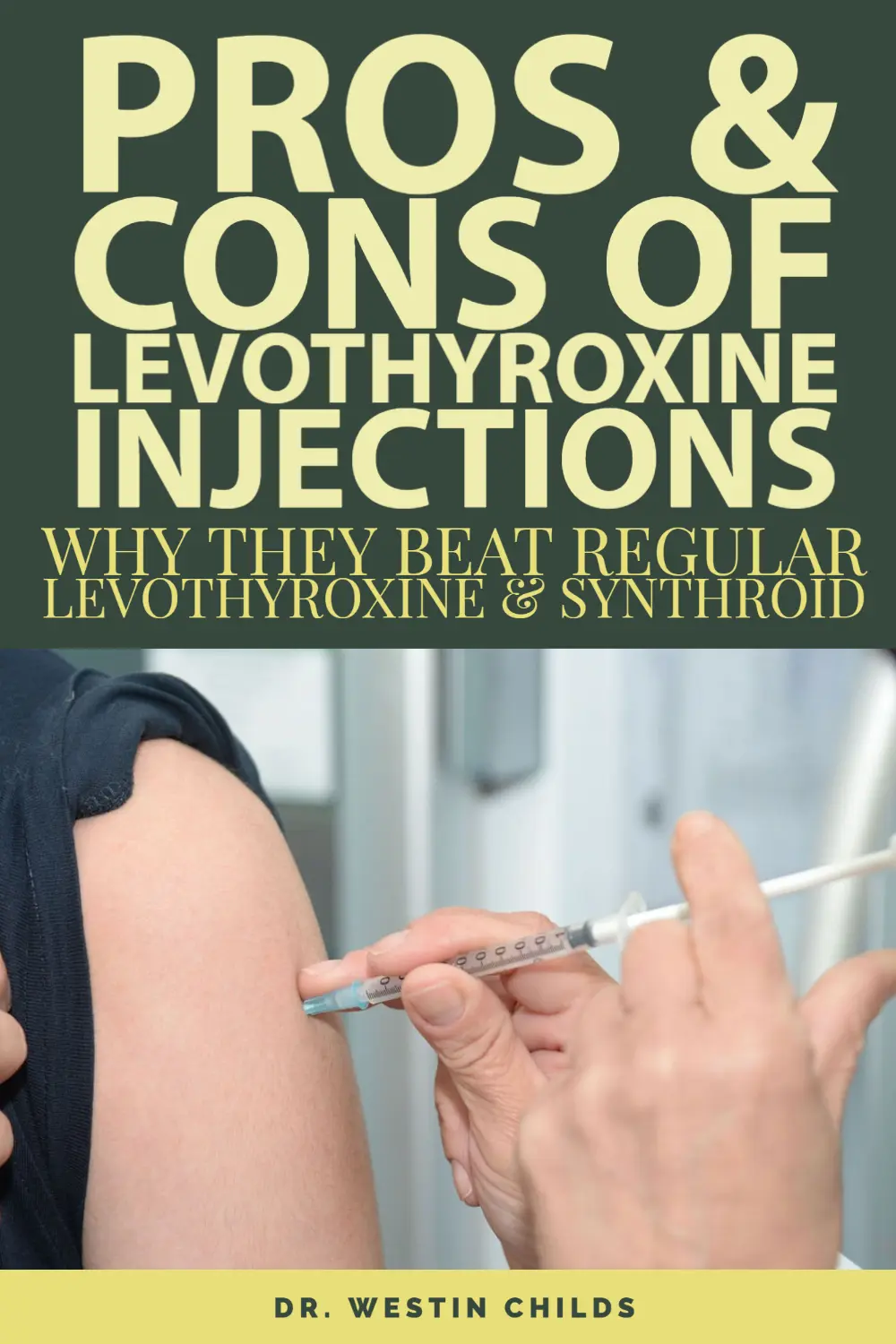

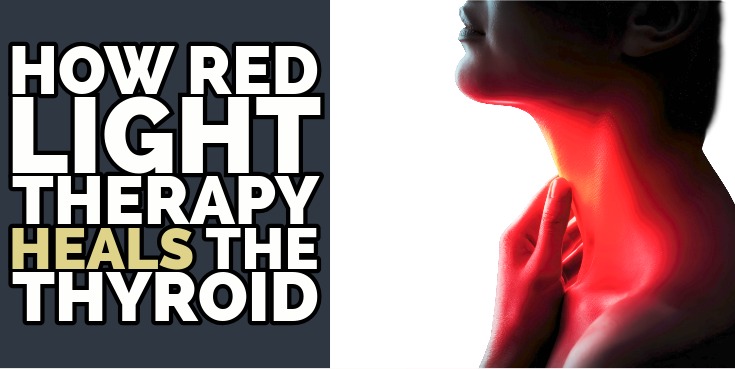
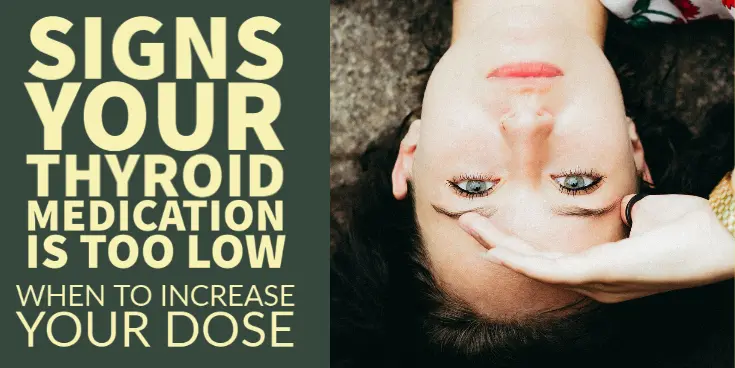
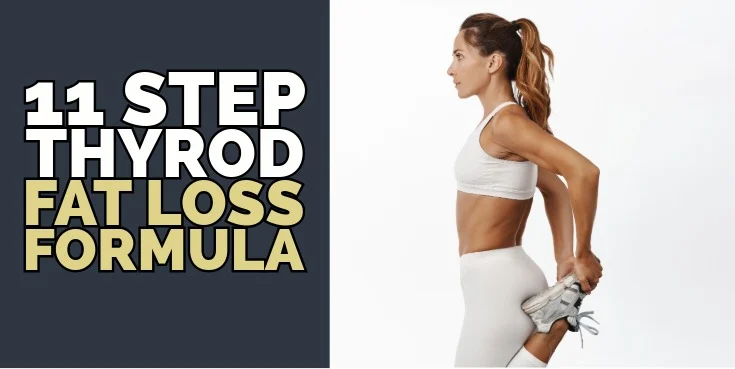
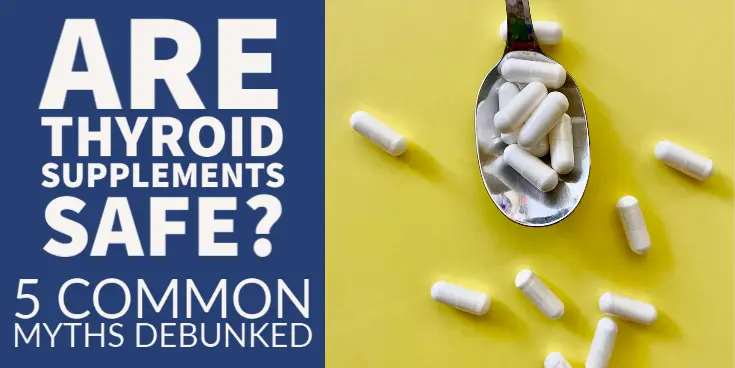
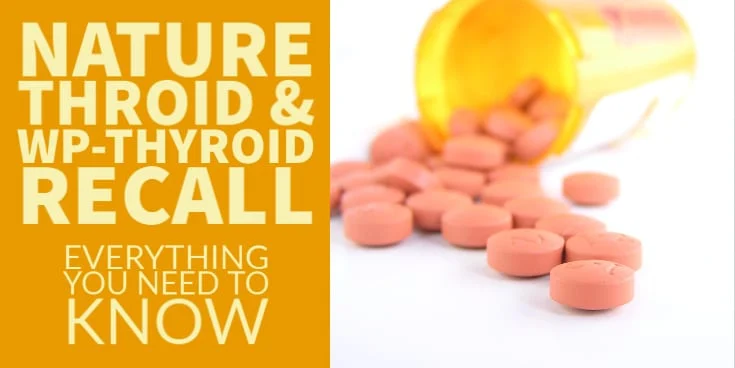
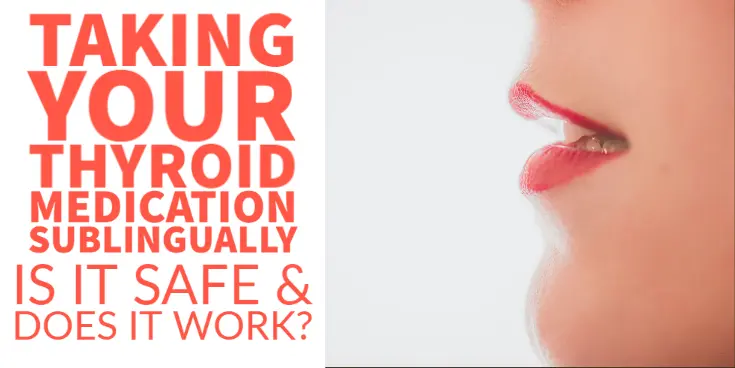

I am almost 50 years old and take nature nature thyroid. I am experiencing some weight gain, but mosy am concerned about inflammation and fatigue. I need to lose 10-15 lbs. Any suggestions?
Hi Sherri,
You will want to get a complete thyroid lab panel to start: https://www.restartmed.com/normal-thyroid-levels/
In regards to your weight, you would want to look at this program: https://www.restartmed.com/hormone-mastery/
And in regards to your fatigue and inflammation, you would want to use these products:
https://www.restartmed.com/product/thyroid-adrenal-reset-complex/
https://www.restartmed.com/product/t3-conversion-booster/
https://www.restartmed.com/product/omega-soothe-sr/
I have been tested for t3 & t4 at least four times in the last twenty years. I drink the cola tasting liquid and the test comes back negative. Any suggestions on what blood test I should ask for?
Hi Liz,
You will want to ask for all of the tests listed here: https://www.restartmed.com/normal-thyroid-levels/
How often and by whom are the injections administered?
I was on generic Levothyroxine and Cytomel after thyroidectomy and did okay for about 6 months then TSH started going up and up. Switched to Tirosint but it’s been a roller coaster of TSH levels going to 5.45 and as low as .23 and varying levels in between. I can’t take pain or sleep meds/supplements because they linger too long in my system so I know I process meds differently than most. I wonder if injections would work differently for me?
Tirosint is expensive and not covered by Medicare.
Hi Mari,
There are coupons from the manufacturer that you can look into.
This sounds amazing! I’m one that suffers from joint pain when thyroid is off?
Would injecting twice a day be even better? I’ve found a morning and afternoon dose are needed.
Hi Robin,
It may be but you’d want to experiment with it. The problem with double injections is that you don’t want to turn yourself into a human pin cushion 🙂
Can you please elaborate on how often and by whom the injections are to be administered?
Hi Bernadette,
Daily and by the thyroid patient. No different than an insulin injection.
What about absorbing through skin? There use to be a French made thyroid cream. I have wondered many times about dissolving T4 tablets that did not work for me and adding them to homemade body creams. I don’t know what to dissolve them with. I have tried grinding the tablet and adding water or aloe. The powder will not dissolve. This sure shows me that most likely the whole tablet passes right through my body. I have found for sale skin patches that have T2 in them along with other diet aids. Give us some info on this approach.
Hi Sher,
The T4 component of levothyroxine can be absorbed sublingually but I’m not sure about transdermally. The problem with trying to use tablets transdermally is that they have fillers and binders in them designed for the stomach.
I don’t want to do injections. The FDA needs to tighten up on the amount of active ingredient in thyroid medicine, which would solve a lot of people’s problems. How can any thyroid patient effectively try different brands when one has more like 95%, one has 100 % and another has more like 105 %? This is okay for people just starting out on Levo but not for people who have been on it for awhile. It makes switching very difficult. For a lot of patients it’s the difference between being able to work and being debilitated and unable to get out of bed. A deficit of 70 cg of Levo a week makes a difference. Each brand and generic should be within 1 % of the active ingredient. They all need to come in packaged color coated boxes with no dyes. There needs to be new research on inactive ingredients that are really necessary. My problem is not with absorption but with brands and generics who have made up their own ideas about how much of the active ingredient should be in their brand. All these brands have most of the same inactive ingredients and dyes(except Euthyrox) and they each come with their own set of symptoms, which is down to the amount of active ingredient. I don’t doubt some brands have ingredients which can cause headaches and other problems but really there’s too much variation in potency. I’d bet hard money if they tested Synthroid they would find their potency on the bottom of the barrel % requirement. Generics get a bad rap but from my experience they’ve always worked better for me because they’re on he higher end of the % requirement. Then some ding dong attempts to switch me over to Synthroid on my usual dose and wonders why I can’t get out of bed. That’s right Sherlock, you just don’t know why.
Hi Dr. Childs.
This is Mari Trejo, and I have many issues with Levothyroxine.
Plus I have some stomach/ intestinal issues for years. Your information is very helpful but am afraid to try any other form of hormones. You have talked about Tirosine in place of Levothyroxine, and seems that I would like to try. Any more suggestions will be appreciated.
Many thanks and blessings.
Mari Trejo.
Regular Tirosint caused me extreme acid reflux with coughing and choking therefore if you have stomach issue I would recommend TirosintSol, which is the liquid Levothyroxine. I was not able to take my usual dose when switching because Tirosint is highly absorbed so you may want to start one dose lower to avoid any extreme symptoms. If your thyroid levels are still low in T4 on your current Levothyroxine then you may be able to switch to your usual dose in Tirosint but if your T4 is on the high end on your current dose then I’d recommend starting with a dose lower on Tirosint.
I had a thyroidectomy two years ago. I am also an insulin dependent type II diabetic. After trying all the typical replacement hormones I landed on Armour Thyroid, which seemed to do the trick. Now I have been diagnosed with severe gastroparesis. This has changed drastically how my oral medications (of all types) are absorbed. My thyroid replacement levels are very hard to maintain. My hand & foot pain are off the charts…this has been my indication of needing adjustment. I have an awesome doc who correctly diagnoses me based on full lab panels & how I’m feeling. I have been contemplating injectable Levothyroxine. After reading your article, I am more convinced this may be the right path for me. I sure would appreciate your thoughts.
OMG! I cannot believe I just found this blog post. My immunologist wants me to try injections, but I’m having a very hard time finding an endocrinologist with any experience who will prescibe this for me. I have mas cell activation syndrome and the chemicals in EVERY brand and generic make me very sick. Even Tirosint gel caps and solution.
I need to give my gut a break. Questions: 1. Did your patients need a LOWER dose of the injection than the tablets or tirosint gel caps they were taking? 2. Are they injecting a daily dose everyday or a higher dose every few days? 3. Doesn’t most of our T4:T3 conversion occur in the liver? If it bypasses the liver, how would I convert? I would love to talk to you about your patients experience so I can get comfortable about doing this! I’m depserate…
Hi Debra,
Some people do need a lower dose and the frequency can be changed when using injections to biweekly or even weekly. And lastly, injections will still make it to your liver, they will just take a longer route to get there.
Do you happen to know any compounding pharmacies that compound injections right now? I know Xeris Pharma is developing a weekly shot, but it won’t be out for years. They just finished a phase 1 clinical trial and now have to get the FDA involved. At least I know it’s coming!
Hi Debra,
Unfortunately, I do not know any personally.
I asked my doctor at Mayo Clinic to prescribe these injections and she has never heard of injections that patients can administer. What is it called and where can I get it?
Hi Natasha,
Mayo clinic actually has an article about levothyroxine injections but you can also show this to your doctor: https://www.ncbi.nlm.nih.gov/pmc/articles/PMC3614336/
It comes as levothyroxine powder which then needs to be reconstituted. It’s very similar to hCG.
I take thyroid medicine and it makes me sick very sick my digestive track is a wreck I feel real nervous and feel like I am going to have a nervous breakdown I would like to try injection and see if that would work better I have tried 4 different meds please need help
Dr Childs,
I have severe issues with absorption and would like to try levothyroxine injections. Can you recommend a doctor who has knowledge of this approach and is willing to prescribe? (Im in NY but I’ll travel anywhere.) Also, does the doctor or the patient create the injection? Lastly, who administers the injection?
Thanks so much!!
Nicole
Hello doc,
My name is Timothy Kim and I am writing you because I’m in a unique predicament.
I am taking liver enzyme inhibitors, and it’s impossible for me to include levothyroxine due to this. Would the injectable levothyroxine help me avoid the liver metabolism whilst being on the liver enzyme inhibitors?
Please, I am asking for a friend. The level of fatigue I’ve experienced recently is starting to feel surreal. It comes in waves, sometimes the problem goes away after a few days, that’s why I’m not panicking. It just sucks because I have so much work I have to do and I have to actively try to train my mind to not focus on my handicaps and try to power through it…
So let me know what you think about the injectable levo, thank you kindly my good sir.
At present doctor will ever give you levothyroxine injections because there is no formal methodology for obtaining a diagnosis of idiopathic Refractory hypothyroidism. The most recent and most authoritative publication on this topic is here:
https://www.endocrinepractice.org/article/S1530-891X(23)00556-6/abstract
and here
https://pubmed.ncbi.nlm.nih.gov/28695483/
Xeris’s Levothyroxine (XP-8121) won’t be on the market for years.
It’s hopeless. We should just give up and accept that we will never live a normal life no matter what we do.
Hi Joshua,
You’ll have a hard time finding conventional doctors willing to prescribe it, but if you look outside of that model you should be able to locate someone. There are also still plenty of other options and formulations including NDT, SR T3, IR T3, compounded NDT, compounded T4 + T3, liquid levothyroxine, oral T2, T2 cream, etc. There are more than enough options and combinations that 99.9% of thyroid patients can find something that works for them using what is currently available.